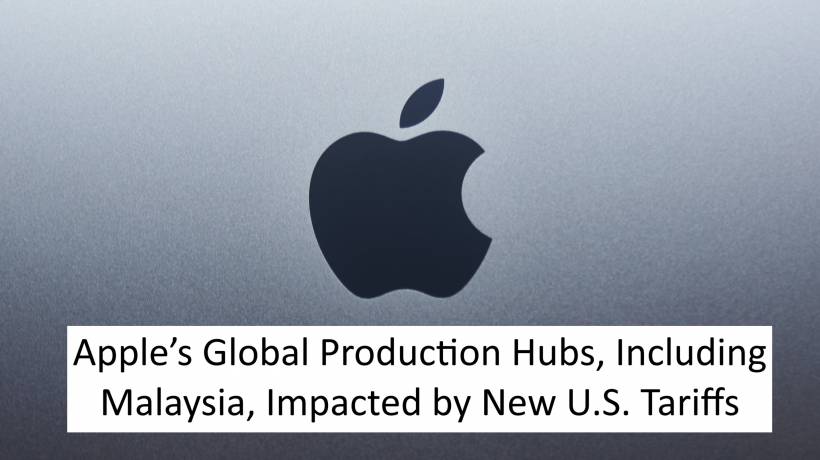Apple Inc. is once again feeling the heat from U.S. trade policy. Despite years of trying to shield itself from the fallout of global trade tensions, the tech giant is now directly affected by a new wave of tariffs introduced by President Donald Trump's administration.
New Reciprocal Tariffs Target Apple's Supply Chain
The White House announced a sweeping set of reciprocal tariffs—duties imposed in response to tariffs placed on U.S. goods—that could deal a major blow to Apple's globally distributed production network. While the focus remains on China, where Apple still sources much of its hardware, the levies also affect other countries where Apple has expanded manufacturing to reduce reliance on China.
Here's a breakdown of the new tariffs affecting Apple's key production hubs:
Investors React: Apple Shares Take a Hit
The announcement caused a sharp drop in Apple's stock, with shares falling as much as 7.9% in after-hours trading. The stock was already down 11% year-to-date, reflecting broader tech sector pressures. Analysts and investors are increasingly concerned that Apple's profit margins could be squeezed—especially if the company opts not to raise prices in response to rising costs.
According to a note from Bloomberg Intelligence analysts Anurag Rana and Andrew Girard, Apple is unlikely to increase prices significantly, especially in an environment of weakened consumer confidence.
Past Efforts to Avoid Tariffs May Not Work This Time
During Trump's first term, Apple CEO Tim Cook successfully lobbied to exclude core products like the iPhone from previous tariffs, arguing that they would hurt an American brand while benefiting competitors like Samsung. But this time, even Apple's diversification efforts may not be enough, as the new tariffs cover a broader range of countries—including many where Apple has relocated production in recent years.
Apple's U.S. Investments Not Enough to Offset Tariffs
In a bid to align with U.S. policy, Apple earlier this year pledged to invest US$500 billion (RM2.2 trillion) in the American economy over four years. This includes producing AI-related servers in Texas and a limited number of chips in Arizona.
Despite these gestures, Apple still does little large-scale manufacturing in the U.S. Its only widely advertised U.S.-assembled product is the Mac Pro, which starts at US$6,999 and is built in Texas—but even that product relies heavily on imported components, many of which come from China.
Outlook: Apple Faces Tariff-Driven Uncertainty
With the new tariffs set to take effect on April 9, Apple faces a complex challenge: balancing production costs, supply chain strategy, and consumer pricing, all while managing political relationships. As more of its overseas manufacturing hubs are hit with tariffs, the company's long-term cost structure and profitability could be under pressure—unless it finds a new way to navigate an increasingly protectionist trade environment.






Comments